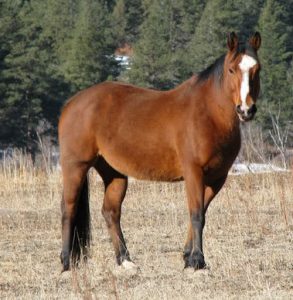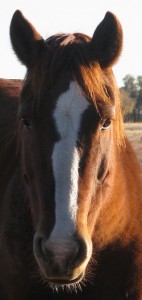 What is an Indigenous view of horses? It varies, of course, not only tribally but individually. So we can only explain something about how we in Tapestry see horses, and how they work with us as a result.
What is an Indigenous view of horses? It varies, of course, not only tribally but individually. So we can only explain something about how we in Tapestry see horses, and how they work with us as a result.
To begin with, horses are proud members of their own Nation. They have lived in North America longer than settlers have. They are our senior relatives. In fact, many American Indian and First Nations oral traditions tell us that our people here have partnered with horses for many centuries.
The Horse Nation has its own ways and values, just as do the various nations of human beings. Horses follow these ways, just as human beings follow human ways. We are all subject to our instincts to some degree, both horses and humans. But we can all equally overcome these instincts with experience, practice, and motivation. For both horses and humans, the motivation that overcomes the instinct of fear is compassion. Horses put up with the unintentionally abusive behaviors of so many humans because they are compassionate and want to partner with us.
We do not train horses, but teach them. And they teach us the same way. Communication and learning are two-way between horses and human beings. Communication and learning do not flow only from the “greater” human being to the “lesser” horse, for one is not greater than the other, but merely different. Horses have their own wisdom, their own gifts of healing and teaching, and they share these with humans as much as we permit them to do so.
 The horses who work in our programs came to us to do the work they do. They willingly carry people to the Land and to their own spiritual center, which is the place from which peace and well-being flow. And, in return, the people who interact with them need to be respectful, compassionate, and aware.
The horses who work in our programs came to us to do the work they do. They willingly carry people to the Land and to their own spiritual center, which is the place from which peace and well-being flow. And, in return, the people who interact with them need to be respectful, compassionate, and aware.
Horses are partners, teachers, and healers — not symbols, not metaphors, and not clay avatars to be shaped in whatever way a human decides they should be shaped. They are not magical unicorns, but they are not dumb brutes at the mercy of terrible instincts. They are strong, independent beings who must be respected for who they are.
They are Horse Nation — and proud of it!
To learn more about the wisdom, courage, and agency of Indian ponies and their many Mustang descendants, watch this video storytelling by Peter Lengkeek, Hunkpati Dakota, Crow Creek Sioux Tribe of South Dakota. The film was produced by Keith BraveHeart, Oglala Lakota. Advance the video player time bar to 6:19 to hear him tell you this historically true story in English. The story only lasts about 2 minutes. But after you hear it, you will have greater respect for the Indigenous horses of Turtle Island (North America). You might also want to watch the rest of the video and contribute to the Lakota horse program it supports.
We Are A Horse Nation (Short Version) from Keith BraveHeart on Vimeo.
Explore Horses and the Land of North America.
Explore Horses as Indigenous to Turtle Island.
